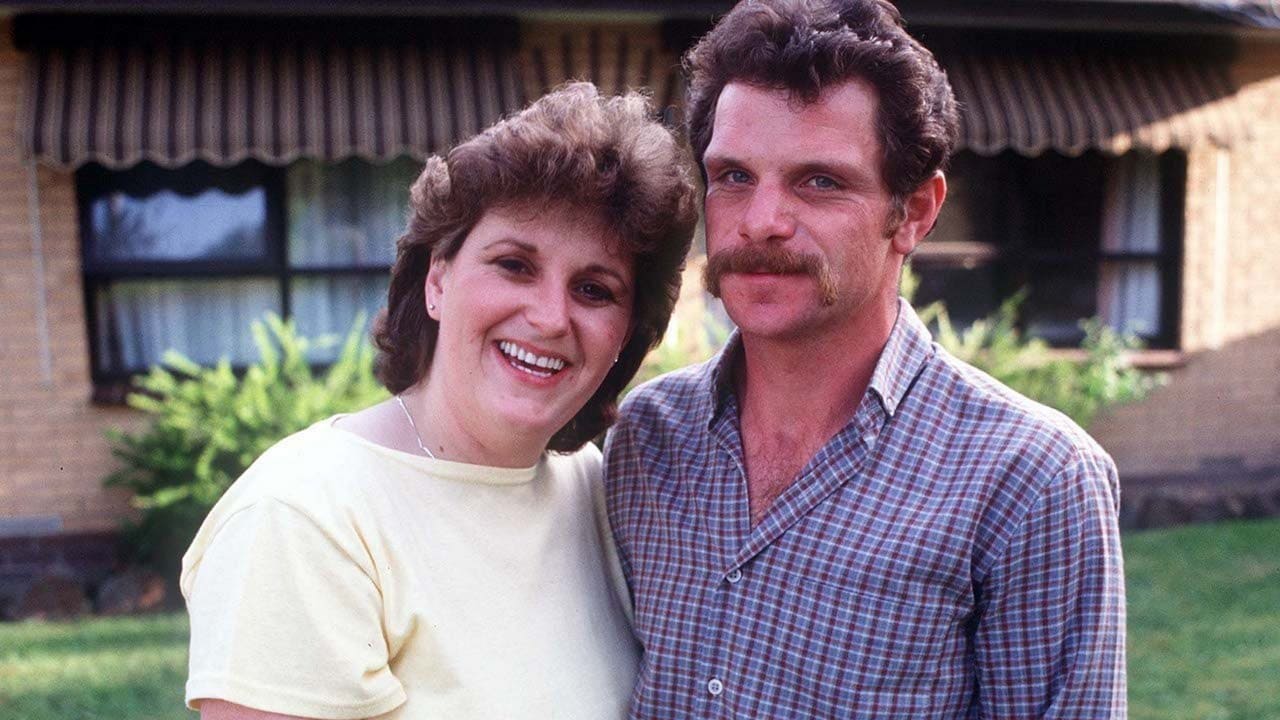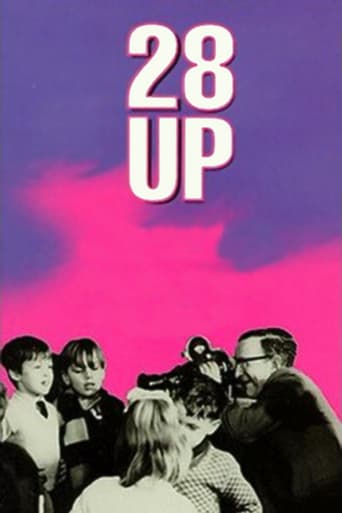

"Give me the child until he is seven, and I will give you the man." So goes the old proverb, and the proof is in this fascinating documentary, the fourth chapter in an ambitious, ongoing epic of non-fiction filmmaking already two decades in the making at the time.The project began in the middle 1960s as a modest examination of English class divisions in a group of seven-year old children from different social backgrounds, and has been updated every seven years to show their progress through adolescence to young adulthood. Each individual biography resists the pre-determined notions of (specifically English) status and privilege around which the entire cycle of films is based, becoming instead a record of the same, sometimes rocky path to maturity followed by everyone, regardless of upbringing. At age seven every child is carefree and impressionable; at fourteen most are sullen and inhibited, uncomfortable in puberty; at twenty-one they are, by degrees, poised to reach their potential: eager and naive or cynical and confused.And by age 28 their niche in society has been secured, for better or (sadly) for worse. The candid self-analysis, and the range of insight and opinion, makes the film (individually, and as a series) an invaluable document of human growth and development, as well as an irresistible reminder of our own personal destiny.
... View MoreIn 28 Up, it seems like the 'the Man' part of the 'Give me a Child' bit that is quoted in every Up movie is starting to take shape, for the men and women. Or, at least, most of them. We see the gradual progression of life start to take shape: careers, over the course of the people's 20's, have been sought out, and they've gotten married and/or had children. Some, in fact, who weren't married before have been changed for the better it would seem by being married (i.e. Jackie), and some aren't living in Britain anymore (one is a physicist living in America with his wife, another has lived in Australia for quite a long time).The series in this 'episode' film centers around the real progress into adulthood, and how the interviewees now feel about how their lives, loves, careers have progressed. A given topic that comes up is how they think they've changed since being in the first film at seven, and the consensus, a strong one presented, is that a person is at least, potentially, there at the age, but needs to grow (like a seed). It's fascinating too to see how the children in groups have progressed about as expected, or with some relativity. For example the three boys, now adults, sitting in the same line (albeit one of them declined to be interviewed, ironic since he works for the BBC in 1985), one of whom a prissy, upper class citizen, and another not so much, based on hair-length perhaps.In general 28 Up seems to view the subjects as they would be naturally by this point as adults, and some, like the bricklayer, revealed how they might turn out when let loose in the 'playground' at age seven, some building a house and some, well, not (another fascinating subject like this is the former jockey turned cab driver). And yet a good deal of these subjects, at least for the moment of 28, look set for their life, either with a current wife or kids or a steady income at something they've worked for... which brings us to Neil. He's the one who, at 28, has no current prospects, who was happy as a child but now is disillusioned to the fact that he doesn't have a career or much of a life, but in a way is fine with that (he applied to Oxford, but didn't get in). He's the stark, fascinating contrast that gives 28 Up a great sense of depth. The class system in Britain, or just in how it sets up these kids, is revealed in the highs, mediums and lows of living, and Neil is certainly a low, but not feeling bad about it (at the least, he says, he can eat now, unlike some years before).
... View MoreI got hooked on these. The first one was only mildly interesting, a sort of necessary toll. Everything of interest in it is repeated later, but it was a solid reference for the editions that followed. The next two editions were absolutely captivating.There's something about that period before you become an adult, a time when switches could flip, butterflies can affect. The conceit of the series is that the British class system is deterministic. So the game in the first films is in engaging with these people in support. We send wishes into the ether, attempting to reach across space and time. The don't grow up until we see them and when they are restricted, it is because of constraints we allow.Any failure at this stage, any flaw in character is in part our responsibility. So we experience a blizzard of minor successes and defeats. Each person is a collector of urges, each a measure of a successful or failed society. These two (14 up and 21 up) were engaging films.But by now, these are genuine adults. What errors in formation that could be influenced by our surrogate parenting have already set. Now they are simply beings. The only mildly engaging of these souls is Neil, a bum on the dole. Everyone else is no more now than someone ordinary that you encounter in life, each on their own path, working on narrow futures beyond our control.The major difference is that some have some things to claim over the others. Different things, but each presented in comparison. I wonder if I can stand the investment of what comes next.Following this, you are following Apted as he grows in skill, insight. What he looks for as signs of maturity. I hope he is up to the task. His other films seem to imply that he is one of the failures, that our urges, wishes, prayers didn't reach him.Ted's Evaluation -- 2 of 3: Has some interesting elements.
... View MoreMichael Apted must be congratulated for having (or perhaps stumbling upon) the vision for this study. Begin with 14 seven year olds in England, film them in a few interesting situations, and follow those same kids as they grow up. Every seven years. Because all of our lives transpire at roughly the same rates, we cannot actually observe children growing up. But this filmed approach is the next best thing.In this film we get to see (most of) the same children at 7, 14, 21 and 28. Just as we saw a great difference from 14 to 21, again we see a great difference from 21 to 28. Having been in the working world for 5 or 6 years, most married and raising families, they no longer look and act like the searchers we saw in earlier films. Except for Neil, who at 7 seemed to be the brightest and most expressive, to a 28-year-old that never knows if he will be homeless the next month. As dramatic, in the opposite direction, was Suzy who went from a disenchanted dropout to a happy wife and mother. Still, in each subject we can identify characteristics that have stayed with them as they grew up.We still see how the "process" has influenced the "product." To a good degree, who they are at 28 is a product of having been in the "UP" series every 7 years, and the internal pressure to be worthy for the world to see them.This and all the others through '42-UP' in 1998 are on the 5-disk DVD set just out. ("49 UP" has been made but is not yet available on DVD.) However, simply seeing the most recent film (42-UP or 49-UP) is pretty good, because each film contains snippets of each of the former ones, allowing us to see how each child developed in 7-year increments.Just a marvelous study of growing up.
... View More